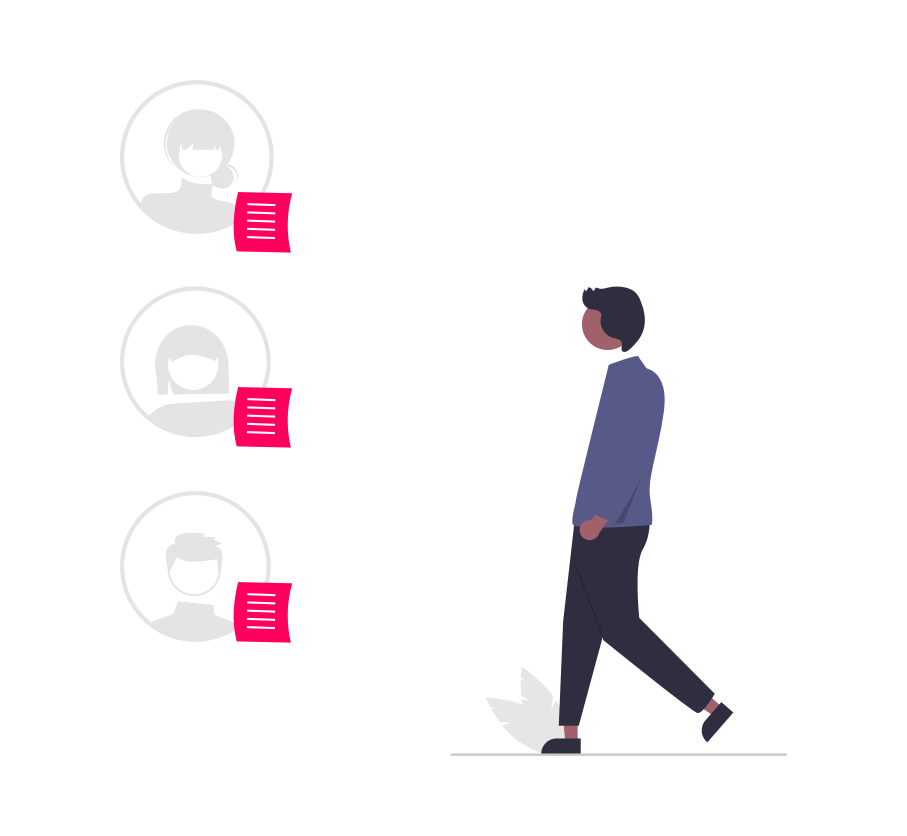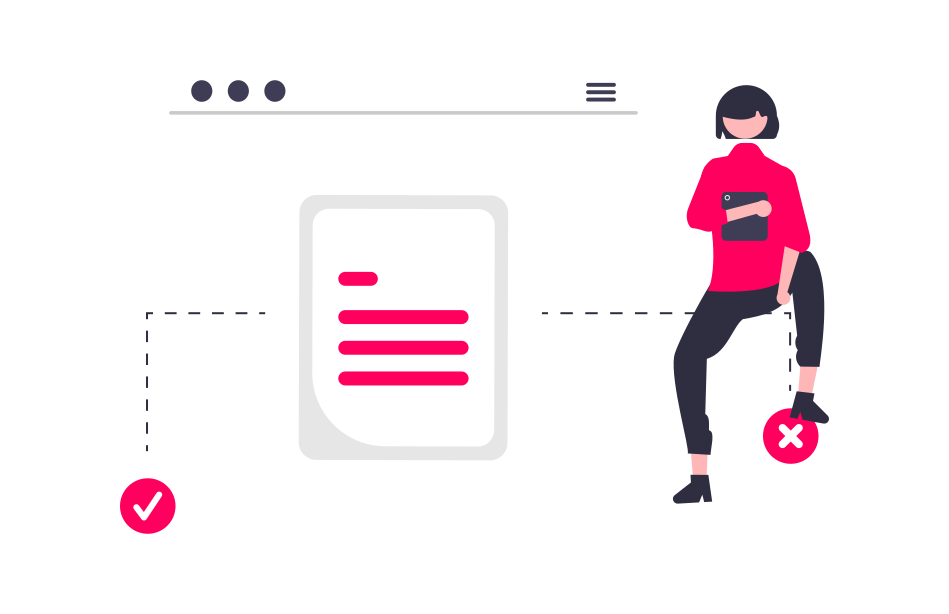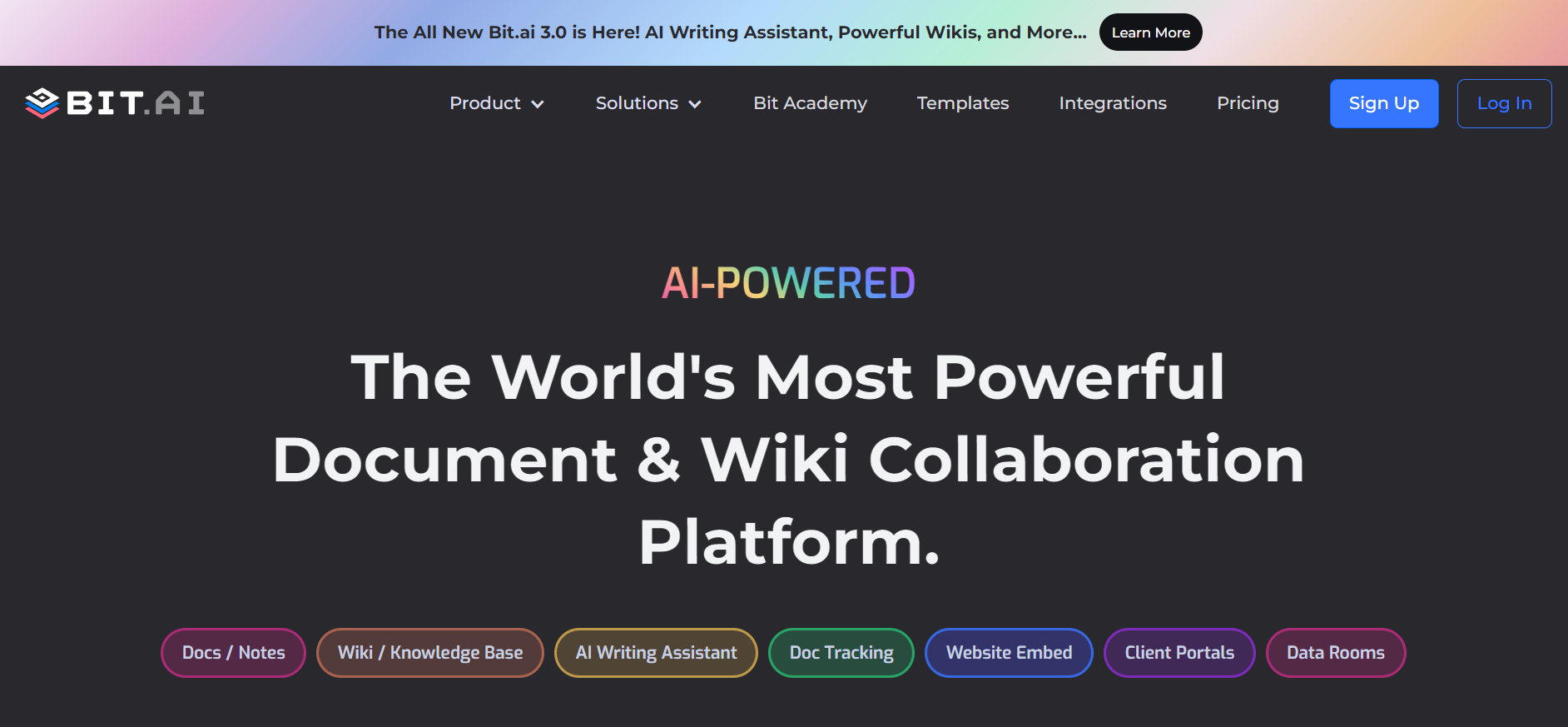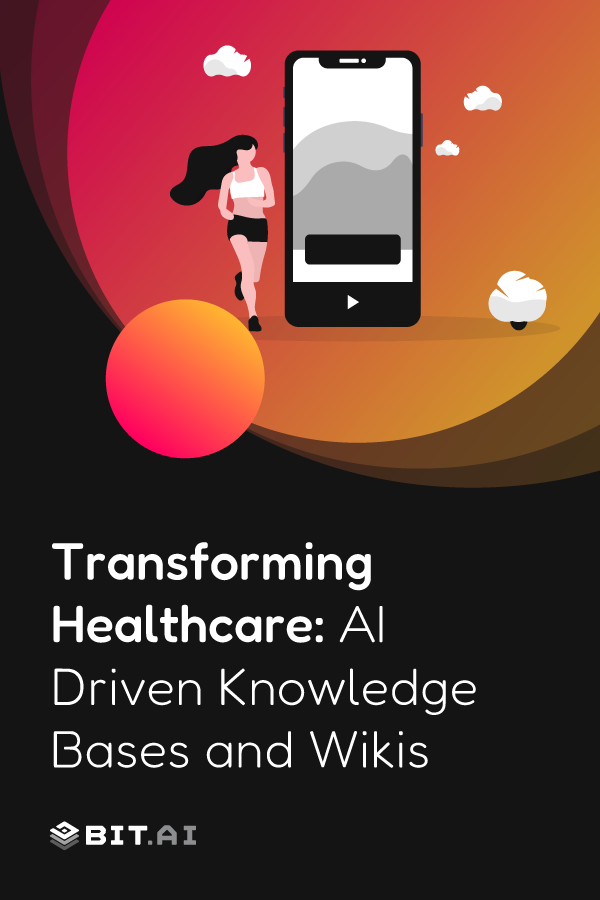Digital documentation is the backbone of modern healthcare. It helps keep all your health information in one place, making it easily accessible to authorized personnel. Imagine you visited the doctor for a mysterious rash last year or had an allergic reaction long ago—your doctor can quickly pull up your records with a click. This ease of access leads to faster diagnosis and better patient care.
However, clinical documentation isn’t perfect. A study showed that only 51.1% of health professionals achieved “good” routine practice documentation, with crucial details like pre-diagnosis, lab results, and medication information often missing. This can lead to incomplete patient records, potentially impacting the quality of care.
This is where AI documentation tools come in. By enhancing healthcare knowledge bases and wikis, AI can fill in these gaps, ensuring that all necessary information is accurately recorded. AI can organize and update patient records efficiently, ensuring every detail is captured and accessible. This not only helps doctors make informed decisions but also saves time by reducing the need to manually search for information.
In this blog post, we’ll explain why you should use an AI-powered knowledge management system, how it differs from a traditional KMS, and the best ways to manage your data. So, let’s begin!
Traditional Knowledge Base vs AI Knowledge Base
Having access to accurate and up-to-date information is crucial in healthcare. Traditionally, this information is stored in knowledge bases, which are collections of documents, manuals, and guidelines. However, with the adoption of AI in knowledge bases, the documentation process has evolved significantly, addressing several critical needs in healthcare.
Traditional Knowledge Base
Imagine a traditional knowledge base like an old library. Some bases often have information arranged in a straightforward manner, but finding specific details can be like searching through a messy room. They’re reliable but might lack modern tools to help users find information quickly or to update content efficiently.
For healthcare workers, this could mean spending extra time searching through documents to find guidelines, procedures, or patient information. It’s like having a library where books are organized by topics, but you still need to read through each book to find what you need.
AI Knowledge Base
Now, think of an AI-powered knowledge base as a super-smart assistant. It doesn’t automatically update itself like magic, but it’s designed to make your work easier and faster. It can do amazing things like generating outlines, summarizing lengthy documents, and even helping write detailed reports or manuals.
In healthcare, this means AI can help create structured documents like patient care protocols or research summaries quickly. For example, if a doctor needs to update treatment guidelines, AI can assist in gathering and formatting the latest research findings into a clear and organized document.
- Generative Capabilities: AI can help generate content like summaries, outlines, and even detailed documents based on the latest data and trends.
- Interactive Content: Combines text, images, videos, and other multimedia to create engaging documents.
- Advanced Search: Uses natural language processing to understand and respond to queries in plain language.
- User-Friendly: Easy to navigate with interactive and visually appealing content.
Example: Suppose a nurse needs a summary of the latest research on a new medication. An AI-powered knowledge base can generate a concise summary in seconds, saving time and providing the most up-to-date information.
Key Differences:
Here’s how AI-powered knowledge bases stand out:
- Efficiency and Speed: AI can help create documents quickly. For instance, it can generate outlines, summaries, and even full drafts of documents like procedures, reports, and manuals. This saves a lot of time for healthcare professionals who need to focus on patient care.
- Organization and Accessibility: AI-powered tools can organize information automatically. They categorize data into sections with headings, subheadings, and formatting, making it easier to navigate and understand. This is crucial in healthcare settings where clarity and quick access to information can save lives.
- Collaboration and Innovation: These tools support teamwork by allowing multiple people to work on documents simultaneously. They encourage innovation by suggesting ideas and helping teams brainstorm solutions or new approaches to healthcare challenges.
- Personalization and Customization: AI can create personalized templates that fit specific needs. For example, it can generate templates for different types of healthcare documents like patient education materials or research papers, reducing repetitive tasks for healthcare providers.
- Quality and Consistency: By automating tasks like formatting and content generation, AI helps maintain quality and consistency across documents. This ensures that information is always presented in a professional and standardized manner.
Traditional knowledge bases are like a basic bookshelf – reliable but manual and time-consuming. On the other hand, AI-powered knowledge bases are like having a brilliant research assistant at your side, capable of quickly finding, summarizing, and organizing information to make your work easier and faster.
Benefits of Using AI in Healthcare Knowledge Bases and Wikis
Using Artificial Intelligence (AI) in healthcare knowledge bases and wikis offers several significant benefits that improve how medical information is accessed, managed, and utilized.

- Crystal Clear Knowledge: AI can scour vast amounts of medical research and patient data to create super-detailed wikis. This puts the latest best practices and proven procedures right at a doctor’s fingertips. No more fuzzy memories – it’s all clear and current.
- Step-by-Step Guidance: AI can organize information into clear, step-by-step guides. This is like having a virtual assistant reminding the doctor: “Okay, for this diagnosis, here’s the exact protocol.” Fewer chances of missing a crucial step means fewer chances of mistakes.
- Shared Expertise: With AI wikis, doctors can learn from each other’s experiences. If Dr. Jones in California successfully treated a similar case, Dr. Lee in New York can access those details instantly. This collective knowledge bank helps prevent doctors from making the same mistakes twice, leading to better diagnoses and treatment plans overall.
- 24/7 Accessibility: Healthcare AI ensures that information is available around the clock. Imagine a doctor needing urgent details about a rare condition at 3 AM. With AI-powered knowledge bases, they can access detailed information instantly, helping them make informed decisions and provide better care to patients, no matter the time of day.
- Streamlined Administrative Processes: Managing healthcare documentation can be complex and time-consuming. AI simplifies administrative tasks by automating workflows such as updating patient records or organizing medical histories. This frees up healthcare professionals to focus more on patient care rather than paperwork, improving overall efficiency in hospitals and clinics.
- Faster Information Retrieval: Time is critical in healthcare. AI enhances the speed at which healthcare providers can retrieve information. Instead of sifting through piles of documents or waiting for test results, AI algorithms can pinpoint relevant information swiftly. This speed can be life-saving in emergencies where every second counts.
- Reduced Error: Medical errors can have serious consequences. AI minimizes the risk of errors by standardizing information and flagging inconsistencies. It can also help in identifying potential drug interactions or suggesting the most effective treatment options based on patient data and medical history. This ensures that healthcare professionals make well-informed decisions, leading to better patient outcomes.
AI in healthcare wikis isn’t about replacing human expertise – it’s about making medical professionals and patients smarter, faster, and better informed. It’s like having a tireless research assistant and a wise mentor by your side, always ready to lend a hand.
Knowledge Management Best Practices for Healthcare
1 Regular Feedback
Think of feedback like a progress report for your knowledge base. It tells you what’s working well and where there’s room for improvement. With regular feedback, you can ensure your knowledge base is:
- Accurate: Feedback helps identify any outdated information or errors that might have crept in.
- Relevant: Feedback reveals if the information addresses the actual needs of healthcare professionals.
- Easy to Understand: Feedback helps you identify if the information is clear, concise, and easy to follow.

How to Gather Feedback Regularly
There are several ways to collect valuable feedback from your healthcare staff:
- Short Surveys: Quick online surveys after using the knowledge base can gauge user satisfaction and highlight specific areas for improvement.
- Embedded Feedback Forms: Attaching small feedback forms at the end of each knowledge base article allows for targeted comments on that specific content.
- Discussion Forums: Creating online forums where healthcare professionals can discuss knowledge base articles and share suggestions fosters a collaborative environment and uncovers common pain points.
2. Use of Multimedia
One effective way to manage knowledge in healthcare is through the use of multimedia. Multimedia refers to using a combination of different media types such as text, images, videos, and audio. Here’s how multimedia can be a game-changer in healthcare knowledge management:
- See It, Remember It: Pictures and animations can explain procedures, diseases, and medications in a way that text alone can’t. Think of an infographic explaining different stages of a cell’s life cycle, or a 3D animation showing how a new surgical technique works.
- Learning on the Go: Short video clips can be lifesavers for busy healthcare professionals. Imagine quick tutorials on using new medical equipment or refreshers on rare medical conditions – all accessible on a phone or tablet during a break.
- The Power of Patient Education: Multimedia isn’t just for doctors and nurses. Engaging videos or interactive apps can help patients understand their conditions, treatment plans, and medication routines. This can lead to better self-care and improved health outcomes.
However, it’s important to use multimedia wisely. Not everyone learns best through videos or audio; some people prefer reading text. So, a combination of multimedia and written information ensures that everyone’s learning preferences are accommodated.
3. Organize the Content
In healthcare, knowledge is power. But with so much information flying around, finding what you need can feel like searching for a needle in a haystack. Here’s how to organize your healthcare knowledge for success:
- Know Your Audience: Doctors need different information than nurses or patients. Categorize your content by target audience. This makes it easier for everyone to find what they need quickly.
- Appropriate Keywords: Use clear and consistent keywords when naming files and folders. This is like labeling your library shelves. Think “Diabetes Management Protocols” or “Patient Education: Blood Pressure Medication.”
- Version Control is Vital!: Healthcare guidelines and best practices change. Keep track of different versions of documents and clearly mark the latest edition. This ensures everyone is using the most up-to-date information.
- Access Control: Implement security measures to control who can view, edit, or delete specific types of information. Patient confidentiality and regulatory compliance are top priorities in healthcare.

4. Create a Discussion Forum
Discussion forums are like online meeting places where healthcare professionals can share their knowledge and experiences. Imagine it as a virtual space where doctors, nurses, and other staff can ask questions, discuss cases, and exchange ideas. Here’s how a discussion forum can help:
- Collective Problem-Solving: Stuck on a puzzling case? A forum allows healthcare professionals to share details and brainstorm solutions with colleagues across departments or even different hospitals. This collective brainpower can lead to better diagnoses and treatment plans.
- Learning from Each Other: No one knows everything! A forum lets experienced doctors share best practices and tips with younger colleagues. It’s also a platform for nurses to exchange learnings on innovative care techniques.
- Staying Up-to-Date: Medicine is constantly evolving. A forum can be a space for healthcare professionals to share the latest research articles, discuss new treatment options, and keep each other informed about emerging medical trends.
- Building a Community: Feeling isolated? A forum fosters a sense of community among healthcare professionals. They can connect with colleagues facing similar challenges, offer support, and build a network of trusted peers.
For a successful forum, clear guidelines and moderation are crucial. This ensures respectful discussions and keeps sensitive patient information confidential. By creating a platform for open communication and knowledge exchange, a discussion forum can become a valuable tool for better healthcare delivery!
Use Bit.ai for Your Knowledge Management Needs
The world of healthcare is vast and ever-changing. New research, advancements in technology, and best practices emerge constantly. For healthcare professionals, staying on top of it all can feel overwhelming. Imagine if there was a central hub to organize, access, and share all this crucial information – a place to keep your knowledge base always growing and readily available.
This is where knowledge management tools come in. They act like digital filing cabinets on steroids, allowing you to store important documents, clinical guidelines, treatment protocols, and even multimedia resources – all in one place. But with so many options on the market, how do you choose the right one? Well, buckle up, because we’re about to explore a powerful tool that might just be the perfect fit for your healthcare knowledge management needs – Bit.ai.

Bit.ai is an AI-powered innovative tool designed to simplify knowledge management, collaboration, and document creation. It offers a comprehensive solution for teams and individuals to create, share, and organize dynamic documents and wikis with ease. Here are some of the features of Bit.ai:
- Real-Time Collaboration: With Bit.ai, healthcare teams can collaborate in real-time on documents and projects. Multiple team members can work together on the same document simultaneously, fostering seamless teamwork. Users can leave comments, tag colleagues, and ensure smooth communication throughout healthcare projects.
- Smart Editor: Bit.ai’s editor is intuitive and designed for healthcare professionals. It helps you create professional documents by formatting text, adding hyperlinks, creating tables, and more, ensuring clarity and precision in healthcare communication.
- AI Genius: Bit.ai’s AI capabilities support healthcare professionals in writing tasks, conducting research, proofreading, rephrasing, and generating ideas. It functions like a knowledgeable assistant, always ready to assist with healthcare documentation and research needs.
- Smart Widgets: Bit.ai offers practical widgets that allow healthcare professionals to embed various types of digital content into documents, such as medical images, videos, files, tables, and even code snippets, enhancing the richness of healthcare documentation.
- Create Smart Healthcare Wiki: Transform any healthcare document into a wiki with Bit.ai’s smart wiki feature. Organize information into sections and link them together for easy navigation and comprehensive understanding of healthcare topics.
- Integration with Other Apps: Bit.ai seamlessly integrates with over 100 apps ensuring comprehensive documentation and analysis.
- Multiple Sharing Options: Share healthcare documents securely through Bit.ai in multiple ways. You can share documents live, embed them on healthcare websites or patient portals, or create trackable links with customizable settings such as access permissions, ensuring controlled distribution of sensitive healthcare information.
Enhance your healthcare knowledge management with Bit.ai’s comprehensive platform. Discover how easy it is to collaborate, create, and share healthcare information effectively. Join Bit.ai today and revolutionize your healthcare document management!
Conclusion
In this blog post, we’ve explored how AI can supercharge healthcare knowledge bases and wikis. We saw how AI can keep the information fresh, make searching a snap, and continuously learn to provide even better answers. With AI’s help, healthcare wikis can become even more powerful tools for medical professionals, patients, and anyone seeking reliable health information
We have also introduced a tool that is going to make the documentation process a breeze. So what are you waiting for? Give Bit.ai a try today!
Further Reads:
Knowledge Management Vs Information Management: The Differences!
Knowledge Hoarding: What is it & How To Combat It?
How to Create an Internal Wiki to Collect and Share Knowledge
Internal Knowledge Base – A Quick Guide by Bit.ai


